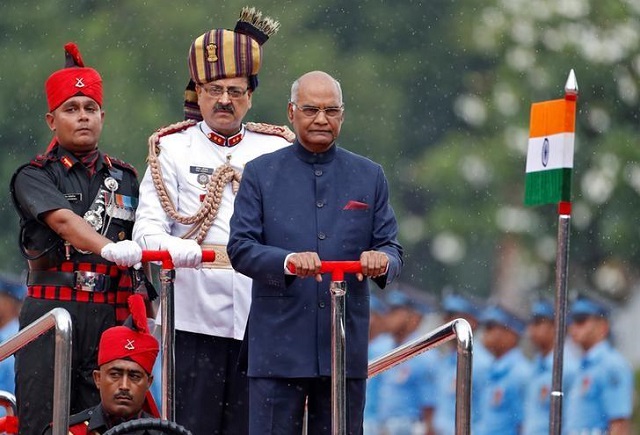
The latest row over Arunachal Pradesh suggests the Asian giants remain far apart, despite recent attempts to defuse tension over a region that China claims as southern Tibet. The Indian president went over the weekend, inaugurating a new state assembly building.
India's Rahul Gandhi set to take over as Congress party chief
For India, the state is where the sun first rises - being its easternmost region - each day, and from here light is spread across the country, he said in a speech to the state assembly. He also remarked on several steps taken by the federal government to advance the state's transport links.
Speaking at a daily news briefing in Beijing, Chinese Foreign Ministry spokesman Lu Kang said that China had never recognised Arunachal Pradesh, but that China's position on the border issue was clear, which was to seek a solution both could accept via talks. "Before the border issue is resolved, both sides should jointly work hard to protect the peace and tranquility of the border region. China resolutely opposes Indian leaders' activities in disputed regions," Lu said.
Reverse migration? Pollution in India's cities draws residents back to rural life
Sino-India ties are at an important stage in development, and China hopes India does not do anything to complicate the border issue but should instead "create conditions" for border talks and the healthy, stable development of relations, he added.
China and India have tried to develop two-ways ties in recent years but there is still deep distrust over the border dispute. In April, China slammed India's decision to host Tibetan spiritual leader the Dalai Lama in the same region, saying it could cause serious damage to relations.
-(1)1717678110-0/Kendrick-(1)-(1)1717678110-0-405x300.webp)





1732445375-0/Untitled-design-(9)1732445375-0-270x192.webp)


1732428810-0/Copy-of-Untitled-(3)1732428810-0-270x192.webp)
1732425487-0/BeFunk_§_]__-(42)1732425487-0.jpg)






COMMENTS
Comments are moderated and generally will be posted if they are on-topic and not abusive.
For more information, please see our Comments FAQ